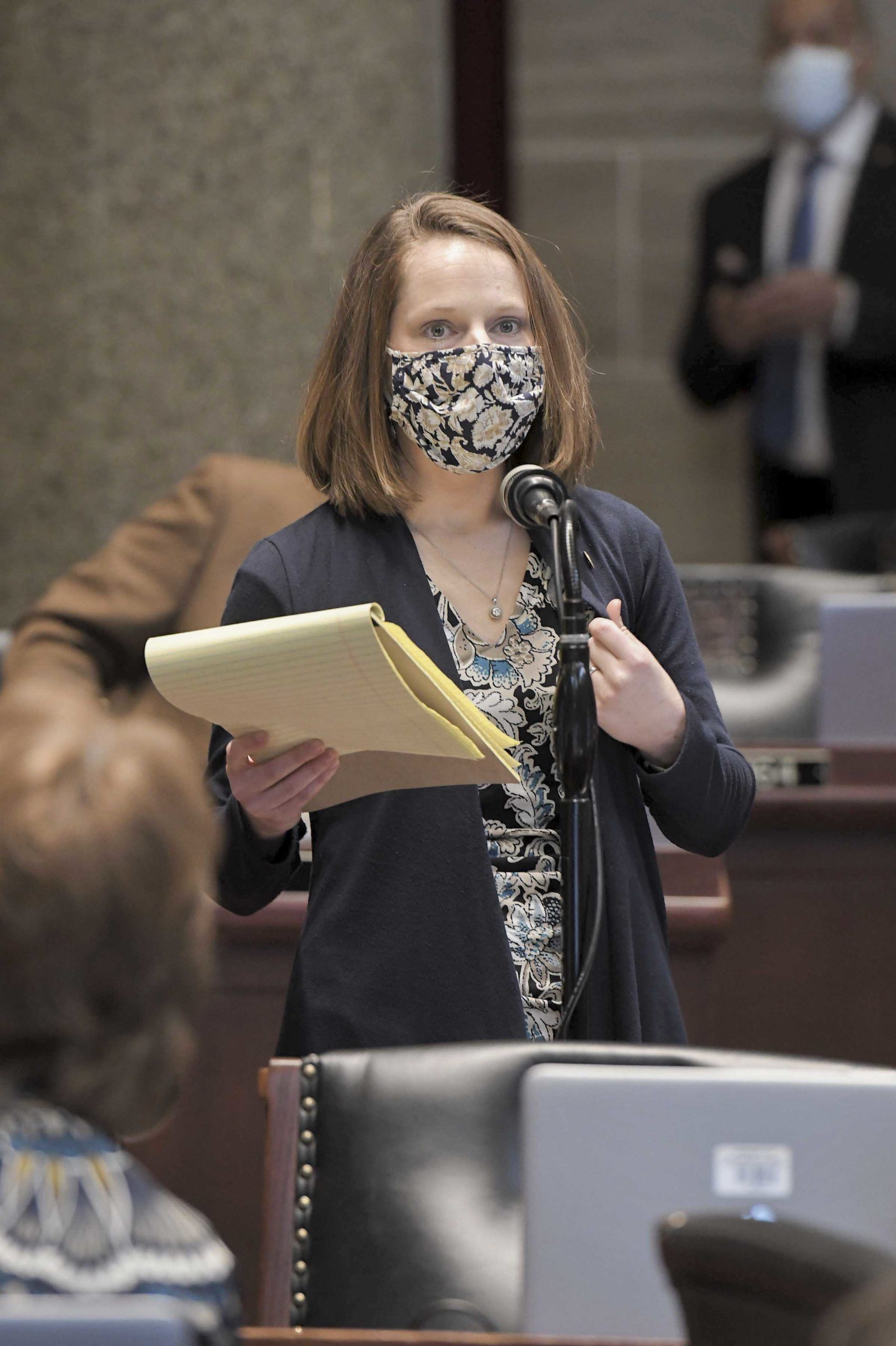JEFFERSON CITY, Mo. — Freshmen state representatives didn’t get the traditional introduction to the state and each other this year because of the COVID-19 pandemic, but that hasn’t stopped them from reaching across the aisle to get to know one another.
In fact, several new lawmakers are attempting to form a House caucus in an effort to work together more on legislation this year and the years to come. They’ve held a few social gatherings — meeting outdoors at Big Whiskey’s near the Capitol — and will gather later this week to get the ball rolling on officially establishing a caucus.

The caucus “is about listening to each other, it’s about learning from each other, it’s about pushing forward on real solutions for our families and state,” Rep. Maggie Nurrenbern, a Democrat who has largely spearheaded the effort, told The Missouri Times.
“In order for us to get stuff done in later years, we’ve got to work together,” Republican Rep. Travis Smith said. “People are so frustrated with the polarization in politics.”
Both Nurrenbern and Smith said there would be certain positions — particularly those dealing with religion and guns — that lawmakers won’t be able to compromise on; but for the majority of other issues, they see the benefit of coming together. Smith, in particular, pointed to the unanimous passage of two bills last month in the House dealing with adoption and foster care as an example of unity.
Nurrenbern said she wants to mirror the group after the Problem Solvers Caucus in Washington, D.C. The congressional caucus is made up of an equal number of Democrats and Republicans and includes representatives from around the country in an effort to find common ground on certain issues.
The representatives who have expressed interest so far are a mix of those from more purple districts and others who are hyper-partisan, Nurrenbern said.
“A lot of us say, ‘I’m a very progressive person’ or ‘I’m a very conservative person.’ However, it doesn’t matter which side or how far on the spectrum you are. We agree when it comes to infrastructure that we need to do something. We agree when it comes to economic development,” she said.
Nurrenbern represents HD 15 in Clay County. She beat her opponent by about 3,000, but former President Donald Trump took the county in the 2020 election. Smith, on the other hand, won his solidly red HD 155 by nearly 13,000 votes.
How to establish a caucus
Representatives plan to meet this week to hash out details such as an official name, chairs, and other business. New House caucuses are approved through the Administration and Accounts Committee — chaired by Rep. Jason Chipman this year — according to House Rule 24(2)(e).
“Any group of five or more House members may seek designation as a caucus for the purpose of identifying and collaborating on issues within a common sphere of public interest,” the rule states.
The process is established through a resolution adopted by the committee; it adopted this year’s resolution just last week.
The resolution mandates the group should submit a written letter to the Administration and Accounts Committee, the Speaker, and the House chief clerk with information about the caucus name, members, mission statement, and more. The group must also designate a chair and vice-chair in the letter.
Then, it’s up to the Administration and Accounts Committee chair to approve, deny, or call for a review of the application. If approved, the committee would then inform the Speaker and chief clerk.

Kaitlyn Schallhorn was the editor in chief of The Missouri Times from 2020-2022. She joined the newspaper in early 2019 after working as a reporter for Fox News in New York City.
Throughout her career, Kaitlyn has covered political campaigns across the U.S., including the 2016 presidential election, and humanitarian aid efforts in Africa and the Middle East.
She is a native of Missouri who studied journalism at Winthrop University in South Carolina. She is also an alumna of the National Journalism Center in Washington, D.C.
Contact Kaitlyn at kaitlyn@themissouritimes.com.





















